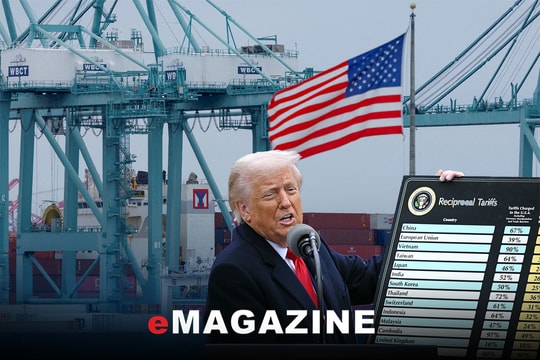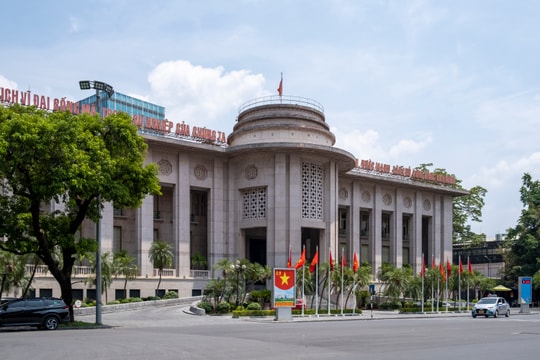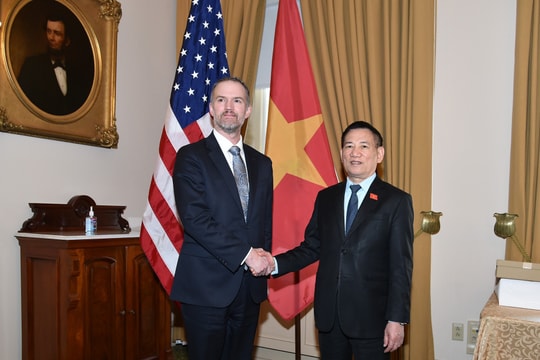Big C wants to oust Vietnamese businesses?
Economic experts believe that Big C's quick "demand" for discounts could be "a measure, a trick, a way to "force" Vietnamese businesses to pay high commissions, if they do not accept, they will bring in Thai goods..."
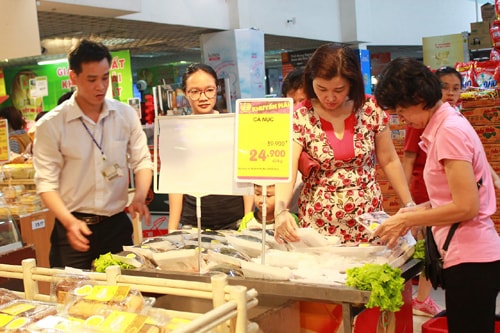 |
| Big C is "forcing" businesses to pay high commissions. If they don't accept, will Big C bring in Thai goods? (Illustration photo) |
When acquiring retail systems in Vietnam, foreign corporations announced that they would continue to accompany Vietnamese businesses and products. However, in reality, not long after the supermarkets were transferred to Thai hands, Thai products gradually covered the supermarket shelves.
In particular, to "oust" Vietnamese goods, foreign supermarkets are finding every way to collect fees and increase fees for Vietnamese businesses.
"Trick" to squeeze Vietnamese businesses?
Recently, right after Big C was transferred to the Thai Central Group, the Vietnam Association of Seafood Exporters and Producers (VASEP) had to send a petition from seafood enterprises belonging to the VASEP domestic goods club to the Big C Vietnam system, requesting not to increase the discount in new contracts in 2016, and at the same time reduce the total discount to less than or equal to 15%.
Specifically, among the supermarket systems that proposed to increase the discount in 2016, Big C Vietnam demanded the highest, an increase of 4.25 - 5% compared to 2015. With this increase, businesses must accept a discount of up to 17 - 20%, even some items have a discount of up to 25%.
"This discount level is too difficult for businesses to survive, let alone make profits to reinvest," lamented the director of a seafood business.
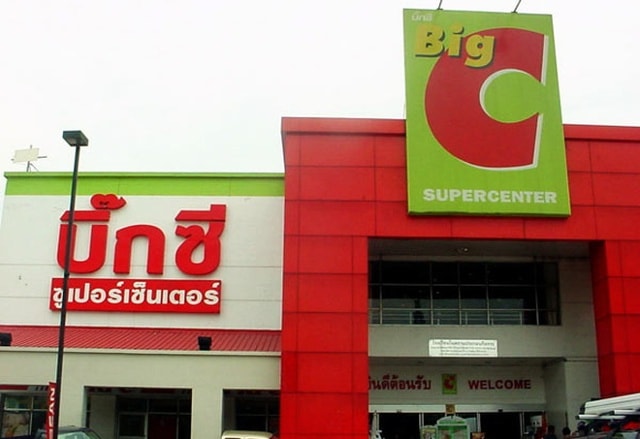 |
| Big C falls into the hands of a Thai owner. After this successful acquisition, where will Vietnamese goods go? |
Talking to VTC News reporter about this issue, economic expert, Associate Professor, Dr. Ngo Tri Long said: It is very difficult to "argue" or sue Big C because the supermarket is like a market, there is no law regulating a specific commission discount number (10% or 20%) when bringing goods to the supermarket, this is just a "willing buyer, willing seller" agreement between the two parties, if it is reasonable then enter, if it is not reasonable then leave.
“For Big C, the old owner may not have forced it, but now the new owner is forcing it, forcing businesses to make less profit. If you don’t agree, then you leave; if you don’t like this place, then find another place… This is a measure, a trick, a way to “force” businesses to pay high commissions; if they don’t accept, Big C will bring in Thai goods. And when Thai goods are brought in, of course Vietnamese businesses are afraid of losing the market because Thai goods are flooding in,” Mr. Long analyzed.
However, according to Mr. Long: Vietnamese businesses should not be too worried when Thai goods flood the Vietnamese market. Because if in terms of origin and nature, Vietnamese goods are of good quality, have lower costs, and are sold at cheaper prices than Thai goods, then there is no reason why they cannot compete with Thai goods.
Vietnamese businesses need to "call for help" collectively
Mr. Vu Vinh Phu, Chairman of the Hanoi Supermarket Association, said that when foreign investors control the distribution and retail systems, it is natural to prioritize their goods. He even declared: "When Big C fell into the hands of the Thais, we lost 70% right at home."
In response to Vietnamese businesses “crying out” about Big C’s excessively high discount increase for goods supply contracts in 2016, sharing with VTC News, Mr. Phu noted: “In competition law, there is a saying: Goods cannot be refused without a valid reason.”
Mr. Phu emphasized: Big C's pressure on suppliers must be "reasonable pressure, pressure from honest and kind people, not pressure to scratch, to do whatever they want... That is not okay."
“We always consider joint ventures investing here as Vietnamese enterprises. Therefore, they should reduce discounts, be friendly to development in Vietnam and not negatively affect the investment environment in Vietnam,” said Mr. Phu.
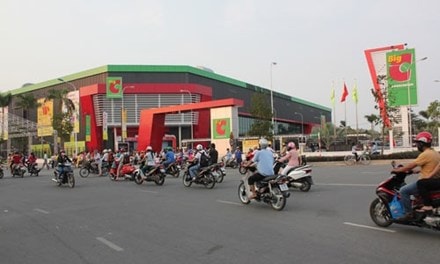 |
| Can Big C Thailand squeeze Vietnamese goods right at home? |
With such pressure from Thai enterprises, domestic manufacturing enterprises must sit together and discuss how to stand firm and "win at home". According to statistics from the General Department of Customs: In the first two months of 2016, the import turnover of household electrical appliances and components reached 226.9 million USD, an increase of 20.45% over the same period last year, mainly from the Asian market, in which Thailand is the main supplier, accounting for over 50% of the total turnover.
Statistics from the Ministry of Industry and Trade also show that, in terms of import quantity, goods originating from Thailand rank second, just after Chinese goods. Household appliances and garments produced in Thailand are present in nearly 9,000 markets nationwide; refrigeration and electronic goods account for 70% of the market share, while fruits alone account for 40% of the market share.
Thai investors are now seizing the opportunity of joining the ASEAN Economic Community to expand their retail market in Vietnam. Therefore, Vietnamese goods will face great competitive pressure.
“When goods are no longer sold in large quantities, production will gradually shrink. Therefore, not only will the retail market share of domestic enterprises shrink, but the production activities of many domestic enterprises will also shrink,” said Mr. Phu.
According to VTC news
| RELATED NEWS |
|---|

